VALUTAZIONE IMDb
7,4/10
6260
LA TUA VALUTAZIONE
Aggiungi una trama nella tua linguaThe history of the independent film company, The Cannon Film Group, Inc.The history of the independent film company, The Cannon Film Group, Inc.The history of the independent film company, The Cannon Film Group, Inc.
- Regia
- Sceneggiatura
- Star
Menahem Golan
- Self - Cannon Chairman
- (filmato d'archivio)
Itzik Kol
- Self - Production Executive
- (filmato d'archivio)
Roni Ya'ackov
- Self - Production Executive
- (as Rony Yakov)
Yftach Katzur
- Self - Actor
- (as Yiftach Katzur)
Recensioni in evidenza
ELECTRIC BOOGALOO: THE WILD, UNTOLD STORY OF CANNON FILMS is a documentary that does exactly what it says on the tin. That is, to celebrate the wild heydays of Cannon Films, a 1980s production house who put out some of the biggest, silliest, cheesiest, and most effects-fuelled films of that decade.
It's a rise-and-fall tale, brought to live via copious clips and lots of interview footage with various stars, directors, and producers who were involved with the films themselves. Thus for a cinema fan - especially somebody who's seen a lot of the films, like myself - it's a real visual treat. The film is a celebration of the Golan and Globus approach - which is to churn out film after film, hoping one or two of them will be a success - and the eventual hubris which saw the company's downfall. It's constantly funny as well, which really helps.
It's a rise-and-fall tale, brought to live via copious clips and lots of interview footage with various stars, directors, and producers who were involved with the films themselves. Thus for a cinema fan - especially somebody who's seen a lot of the films, like myself - it's a real visual treat. The film is a celebration of the Golan and Globus approach - which is to churn out film after film, hoping one or two of them will be a success - and the eventual hubris which saw the company's downfall. It's constantly funny as well, which really helps.
8cafm
Mark Hartley, the man behind the wildly entertaining documentaries about B-grade films and filmmakers, Not Quite Hollywood (2008) and Machete Maidens Unleashed (2010), premiered his latest and, sadly, last documentary - Electric Boogaloo: The Wild, Untold Story of Cannon Films - in the opening weekend of the 2014 Melbourne International Festival (MIFF).
As with Hartley's previous documentaries, the story at the heart of Electric Boogaloo (its name taken from the film, "Breakin' 2: Electric Boogaloo", the strange sequel to the hit 1984 rap dancing film, "Breakin'") cleverly unfolds through the skillful editing together of myriad eyewitness talking heads and interspersing these with clips from relevant films along with some wonderfully tongue-in-cheek animations. Essentially, Hartley's latest film explores the story behind Cannon films from its inception to its ultimate demise, following the weird and wild careers of crazy Israeli cinephiles-cum-directors-cum-producers-cum-Hollywood B-grade movie moguls, Menahem Golan and Yoram Globus. Theirs is an extraordinary rags-to-riches- rags story and one well worth seeing for yourself. Hartley has a rare gift for storytelling in his documentaries, bringing together a complex panoply of opinions, rants, scathing criticism and fond remembrances, and weaving these all together into a taut, laugh-out-loud, highly entertaining film, and Electric Boogaloo is no exception, as demonstrated by the very enthusiastic reception the film received from the audience at MIFF.
For film lovers and those who grew up with the Golan/Globus catalog in the 1980s with films like Missing in Action, Lifeforce, Treasure of the Four Crowns, American Ninja, Break Dance, Death Wish 2 and its sequels, Masters of the Universe, The Last American Virgin, Cyborg, Superman IV: The Quest for Peace ... the list goes on, and on, and on ... this film is pure joy and something of a nostalgia trip. In this regard the film does have a sad side as it follows how the dreams of Golan and Globus would eventually fizzle up in bankruptcy and acrimony, leaving behind a library of impossibly bizarre creations that are truly weird and wonderful. Electric Boogaloo will no doubt prompt you to want to revisit many of these titles or discover others for the first time. I suspect that, being a true lover of B movies, this is ultimately one of Hartley's aims.
As with Hartley's previous documentaries, the story at the heart of Electric Boogaloo (its name taken from the film, "Breakin' 2: Electric Boogaloo", the strange sequel to the hit 1984 rap dancing film, "Breakin'") cleverly unfolds through the skillful editing together of myriad eyewitness talking heads and interspersing these with clips from relevant films along with some wonderfully tongue-in-cheek animations. Essentially, Hartley's latest film explores the story behind Cannon films from its inception to its ultimate demise, following the weird and wild careers of crazy Israeli cinephiles-cum-directors-cum-producers-cum-Hollywood B-grade movie moguls, Menahem Golan and Yoram Globus. Theirs is an extraordinary rags-to-riches- rags story and one well worth seeing for yourself. Hartley has a rare gift for storytelling in his documentaries, bringing together a complex panoply of opinions, rants, scathing criticism and fond remembrances, and weaving these all together into a taut, laugh-out-loud, highly entertaining film, and Electric Boogaloo is no exception, as demonstrated by the very enthusiastic reception the film received from the audience at MIFF.
For film lovers and those who grew up with the Golan/Globus catalog in the 1980s with films like Missing in Action, Lifeforce, Treasure of the Four Crowns, American Ninja, Break Dance, Death Wish 2 and its sequels, Masters of the Universe, The Last American Virgin, Cyborg, Superman IV: The Quest for Peace ... the list goes on, and on, and on ... this film is pure joy and something of a nostalgia trip. In this regard the film does have a sad side as it follows how the dreams of Golan and Globus would eventually fizzle up in bankruptcy and acrimony, leaving behind a library of impossibly bizarre creations that are truly weird and wonderful. Electric Boogaloo will no doubt prompt you to want to revisit many of these titles or discover others for the first time. I suspect that, being a true lover of B movies, this is ultimately one of Hartley's aims.
When Israeli cousins Menahem Golan and Yoram Globus took over The Cannon Group in 1979, cinema had little idea what it was in for. With the company in a dyer financial situation, Golan and Globus began churning out pictures of questionable quality at an unnerving rate, making a small profit with the odd micro-hit that quickly added up. Soon enough, the exploitation pioneers were buying up cinema chains, paying movie stars ludicrous amounts of money, taking over Cannes, and releasing some of the most diabolical and insane movies of 1980's. Electric Boogaloo tells the rapid rise and even faster implosion of the notorious studio, with the people both in front of and behind the camera telling their own anecdotes of the madcap antics that seemed to engulf their every production.
Director Mark Hartley has made a career in documenting exploitation cinema with Not Quite Hollywood (2008) and Machete Maidens Unleashed! (2010), and Electric Boogaloo is undoubtedly his most fun. Packed with clips of such cinematic disasters as Enter the Ninja (1981), Hercules (1983), Breakin' 2: Electric Boogaloo (1984) and Superman IV: The Quest for Peace (1987), the film lambastes Cannon as much as it adores their persistence, levelling the field by also showing us their more interesting efforts - the likes of Lifeforce (1985) and The Texas Chainsaw Massacre 2 (1986), both directed by Tobe Hooper - and the films that were surprisingly great, such as Runaway Train (1985) and Barfly (1987). But this isn't just a collection of clips from some of the most outlandish films ever made, Hartley ensures that the film is highly informative about the 'creative' minds behind the company and the reasons for its inevitable fall from grace.
Amongst the interviewees are John G. Avildsen, Franco Nero, Dolph Lundgren, Robert Forster, Bo Derek and Alex Winter, all telling stories that will have you laughing as well as questioning just how the Israeli's got away with it for so long. Some of it is brutal, with Golan especially coming across as an ego-maniacal tyrant with little care for the safety of his crew and no understanding of the American audience he was targeting. Yet it's all told with a nostalgic fondness, celebrating the fact that these were little guys who actually made it, and doing it all on their own terms. They were, after all, responsible for Chuck Norris's career and the prolonging of Charles Bronson's (although it's questionable as to whether or not that's a good thing), and were eager to give great but fading directors such as Jean-Luc Godard, John Cassavetes and Franco Zeffirelli another shot with complete artistic control. It's a strange story - Golan and Globus clearly adored cinema but didn't seem to understand it - but this is a success story like no other, and insomniacs with little to do at night but watch TV have a lot to thank them for.
Director Mark Hartley has made a career in documenting exploitation cinema with Not Quite Hollywood (2008) and Machete Maidens Unleashed! (2010), and Electric Boogaloo is undoubtedly his most fun. Packed with clips of such cinematic disasters as Enter the Ninja (1981), Hercules (1983), Breakin' 2: Electric Boogaloo (1984) and Superman IV: The Quest for Peace (1987), the film lambastes Cannon as much as it adores their persistence, levelling the field by also showing us their more interesting efforts - the likes of Lifeforce (1985) and The Texas Chainsaw Massacre 2 (1986), both directed by Tobe Hooper - and the films that were surprisingly great, such as Runaway Train (1985) and Barfly (1987). But this isn't just a collection of clips from some of the most outlandish films ever made, Hartley ensures that the film is highly informative about the 'creative' minds behind the company and the reasons for its inevitable fall from grace.
Amongst the interviewees are John G. Avildsen, Franco Nero, Dolph Lundgren, Robert Forster, Bo Derek and Alex Winter, all telling stories that will have you laughing as well as questioning just how the Israeli's got away with it for so long. Some of it is brutal, with Golan especially coming across as an ego-maniacal tyrant with little care for the safety of his crew and no understanding of the American audience he was targeting. Yet it's all told with a nostalgic fondness, celebrating the fact that these were little guys who actually made it, and doing it all on their own terms. They were, after all, responsible for Chuck Norris's career and the prolonging of Charles Bronson's (although it's questionable as to whether or not that's a good thing), and were eager to give great but fading directors such as Jean-Luc Godard, John Cassavetes and Franco Zeffirelli another shot with complete artistic control. It's a strange story - Golan and Globus clearly adored cinema but didn't seem to understand it - but this is a success story like no other, and insomniacs with little to do at night but watch TV have a lot to thank them for.
For those of us that grew up in the VHS age of the 1980's, Cannon Films was a studio that provided us with much of our movie watching excitement. New Year's Evil (1980), Enter the Ninja (1981), Invasion U.S.A. (1985) and Cobra (1986) are just a few of the titles that helped propel Cannon Films in its heyday and is the focus of the new documentary Electric Boogaloo: The Wild, Untold Story of Cannon Films.
Israeli cousins Menahem Golan and Yoram Globus bought Cannon films for $500,000 in 1979 and created a film sausage factory where films were fast tracked to the screen based on high risk concepts or eye-catching movie posters ("At Cannon, 52 pictures a year wasn't enough").
Immediately, the two relatives saw a market for B-movie action films and started to build their empire on the backs of such franchises as Death Wish and various Chuck Norris vehicles such as Delta Force and the Missing in Action series.
Director Mark Hartley is no stranger to documenting film on film. Harley directed Not Quite Hollywood: The Wild, Untold Story of Ozploitation in 2008 and Machete Maidens Unleashed! in 2010. Hartley has a formula that works when exploring niche genres in film and stays the course with Electric Boogaloo: The Wild, Untold Story of Cannon Films.
Clips of films (everything from American Ninja, Texas Chainsaw Massacre II and Bloodsport are intertwined with interviews from familiar faces such as Molly Ringwald, Alex Winter, Dolph Lundgren and Richard Chamberlain. The doc takes us back to the early 80's and Hartley covers as many bases as possible when docu-reminiscing through such mindless yet wildly entertaining films that shaped many of our youths.
For a walk down memory lane, Electric Boogaloo: The Wild, Untold Story of Cannon Films is one hell of a fun ride. But it's a safe ride and one that doesn't give us any real deep deep deep insight into anything and just skims the surface of historical reference. When Electric Boogaloo does try and dive beyond an E: True Hollywood Story expose (such as a bit on diva Sharon Stone) it is met with a shrug of the shoulders and a 'Yea, not surprised' reaction from a target audience that was much more appreciative when the film simply highlighted films that we thought were even greater than the invention of sliced bread.
Electric Boogaloo: The Wild, Untold Story of Cannon Films is a tad overlong at 105 minutes but breathes new life into their decaying body with every newly introduced film that sparks memories of an age long gone. We do get educated on how now more popular directors got their start (Jean-Luc Godard with King Lear, Barbet Schroder with Barfly and John Cassavetes with Love Streams) with Cannon much like Roger Corman started the careers of Ron Howard, Martin Scorcese and James Cameron. And it was interesting to see the downfall of the company with big budget backed busts such as Superman IV: The Quest for Peace and Masters of the Universe.
Menahem Golan (who recently passed away in August 2014) and Yoram Globus did not participate in the documentary so any opinion of their business practices are told by the many interviewed stars and staff that were involved in their pictures including Cassandra Peterson (Elvira), Bo Derek, Michael Dudikoff and Elliot Gould.
Electric Boogaloo: The Wild, Untold Story of Cannon Films felt formulaic. It went through the motions and tired harder to tap into our memories than it did trying to tap into the backlots and secrets surrounding the studio (after all, it is titled 'The Wild, Untold Story'). Still, for someone who has seen every one of the films that was displayed on screen – and some, multiple times - Electric Boogaloo: The Wild, Untold Story of Cannon Films was like putting on your favorite pair of shoes that have long outlived their usage date. It had me reaching into my VHS collection to re-screen films I have not paid attention to in decades. And for that, Mark Hartley deserves credit.
www.killerreviews.com
Israeli cousins Menahem Golan and Yoram Globus bought Cannon films for $500,000 in 1979 and created a film sausage factory where films were fast tracked to the screen based on high risk concepts or eye-catching movie posters ("At Cannon, 52 pictures a year wasn't enough").
Immediately, the two relatives saw a market for B-movie action films and started to build their empire on the backs of such franchises as Death Wish and various Chuck Norris vehicles such as Delta Force and the Missing in Action series.
Director Mark Hartley is no stranger to documenting film on film. Harley directed Not Quite Hollywood: The Wild, Untold Story of Ozploitation in 2008 and Machete Maidens Unleashed! in 2010. Hartley has a formula that works when exploring niche genres in film and stays the course with Electric Boogaloo: The Wild, Untold Story of Cannon Films.
Clips of films (everything from American Ninja, Texas Chainsaw Massacre II and Bloodsport are intertwined with interviews from familiar faces such as Molly Ringwald, Alex Winter, Dolph Lundgren and Richard Chamberlain. The doc takes us back to the early 80's and Hartley covers as many bases as possible when docu-reminiscing through such mindless yet wildly entertaining films that shaped many of our youths.
For a walk down memory lane, Electric Boogaloo: The Wild, Untold Story of Cannon Films is one hell of a fun ride. But it's a safe ride and one that doesn't give us any real deep deep deep insight into anything and just skims the surface of historical reference. When Electric Boogaloo does try and dive beyond an E: True Hollywood Story expose (such as a bit on diva Sharon Stone) it is met with a shrug of the shoulders and a 'Yea, not surprised' reaction from a target audience that was much more appreciative when the film simply highlighted films that we thought were even greater than the invention of sliced bread.
Electric Boogaloo: The Wild, Untold Story of Cannon Films is a tad overlong at 105 minutes but breathes new life into their decaying body with every newly introduced film that sparks memories of an age long gone. We do get educated on how now more popular directors got their start (Jean-Luc Godard with King Lear, Barbet Schroder with Barfly and John Cassavetes with Love Streams) with Cannon much like Roger Corman started the careers of Ron Howard, Martin Scorcese and James Cameron. And it was interesting to see the downfall of the company with big budget backed busts such as Superman IV: The Quest for Peace and Masters of the Universe.
Menahem Golan (who recently passed away in August 2014) and Yoram Globus did not participate in the documentary so any opinion of their business practices are told by the many interviewed stars and staff that were involved in their pictures including Cassandra Peterson (Elvira), Bo Derek, Michael Dudikoff and Elliot Gould.
Electric Boogaloo: The Wild, Untold Story of Cannon Films felt formulaic. It went through the motions and tired harder to tap into our memories than it did trying to tap into the backlots and secrets surrounding the studio (after all, it is titled 'The Wild, Untold Story'). Still, for someone who has seen every one of the films that was displayed on screen – and some, multiple times - Electric Boogaloo: The Wild, Untold Story of Cannon Films was like putting on your favorite pair of shoes that have long outlived their usage date. It had me reaching into my VHS collection to re-screen films I have not paid attention to in decades. And for that, Mark Hartley deserves credit.
www.killerreviews.com
I remember pretty clearly the Cannon Films logo and its distinctive loud crashing sound accompaniment that introduced so many films I watched on video in my teenage years in the 80's. I never really thought too much about it until now, having seen this wildly entertaining documentary about these B movie mavericks. A few years ago I saw another similarly fun documentary about specific genre films, Machete Maidens Unleashed, a film also helmed by the same director Mark Hartley. Well, he sure has a knack for these things because this one follows a pretty similar template where we get to hear anecdotes from a large selection of people who were involved in the making of these flicks and, better still, many clips from a wide ranging assortment of the crazy, fun and stupid movies that Cannon became famous for. They were run by two Israelis Menahem Golan and Yoram Globus (neither of whom appeared in the documentary deciding in true Cannon style to make their own documentary on the subject simultaneously).
Their main decade was the 80's where they unleashed a huge number of low budget movies from horror to sexploitation to action and dance movies plus a whole lot in between. They were mainly known to be purveyors of schlock entertainment and with good reason as, despite releasing some acclaimed films and working with some important directors such as John Cassavetes and Jean Luc Godard, they were in the main responsible for straight-ahead genre pictures. Their films have a refreshing absence of any political correctness whatsoever and often feature copious amounts of nudity and violence, quite often at the same time as in the case of some notorious films in their catalogue such as Death Wish II (1982). Other times they featured laughably bad special effects like can be seen in Hercules (1983), some were blatant bandwagon jumpers like the hip hop dance film Breakin' (1984), they also released the notoriously sexy Bo Derek vehicle Bolero (1984) which so outraged MGM who had set up a distribution deal with them, they released the very silly sequel The Texas Chainsaw Massacre 2 (1986), while some of their output simply defies description like the extremely strange and silly musical The Apple (1980). They made many Charles Bronson and Chuck Norris vehicles; they discovered Jean Claude Van Damme and Dolph Lundgren and gave a platform for cult directors like Tobe Hooper to make movies. Things only started to go wrong in 1987 when they began to over-reach themselves and spent multi-millions on three box office disasters - the Sylvester Stallone film Over the Top which was about...arm wrestling; the superhero movie Superman IV: The Quest for Peace which was very expensive for them but not expensive enough to execute good enough special effects resulting in a laughable film; and finally Masters of the Universe, a film based on the popular 80's toys. So there is a dramatic story arc to this, which helps it function as a narrative but in the main it works so well simply because it is chock-full of entertaining clips from an array of movies and has some funny observations from the people involved. For any B movie lover this really is a must. And what's more, you are guaranteed to be led to seek out a few new flicks off the back of it.
Their main decade was the 80's where they unleashed a huge number of low budget movies from horror to sexploitation to action and dance movies plus a whole lot in between. They were mainly known to be purveyors of schlock entertainment and with good reason as, despite releasing some acclaimed films and working with some important directors such as John Cassavetes and Jean Luc Godard, they were in the main responsible for straight-ahead genre pictures. Their films have a refreshing absence of any political correctness whatsoever and often feature copious amounts of nudity and violence, quite often at the same time as in the case of some notorious films in their catalogue such as Death Wish II (1982). Other times they featured laughably bad special effects like can be seen in Hercules (1983), some were blatant bandwagon jumpers like the hip hop dance film Breakin' (1984), they also released the notoriously sexy Bo Derek vehicle Bolero (1984) which so outraged MGM who had set up a distribution deal with them, they released the very silly sequel The Texas Chainsaw Massacre 2 (1986), while some of their output simply defies description like the extremely strange and silly musical The Apple (1980). They made many Charles Bronson and Chuck Norris vehicles; they discovered Jean Claude Van Damme and Dolph Lundgren and gave a platform for cult directors like Tobe Hooper to make movies. Things only started to go wrong in 1987 when they began to over-reach themselves and spent multi-millions on three box office disasters - the Sylvester Stallone film Over the Top which was about...arm wrestling; the superhero movie Superman IV: The Quest for Peace which was very expensive for them but not expensive enough to execute good enough special effects resulting in a laughable film; and finally Masters of the Universe, a film based on the popular 80's toys. So there is a dramatic story arc to this, which helps it function as a narrative but in the main it works so well simply because it is chock-full of entertaining clips from an array of movies and has some funny observations from the people involved. For any B movie lover this really is a must. And what's more, you are guaranteed to be led to seek out a few new flicks off the back of it.
Lo sapevi?
- QuizMichael Winner was going to be interviewed for the documentary, but he died before production started on it.
- Citazioni
Roni Ya'ackov: She said, "Menahem, I can't do it. I'm dying." He said, "Do it... then die!"
- ConnessioniEdited from Omnibus: The Last Moguls (1986)
I più visti
Accedi per valutare e creare un elenco di titoli salvati per ottenere consigli personalizzati
Dettagli
- Data di uscita
- Paesi di origine
- Sito ufficiale
- Lingua
- Celebre anche come
- Electric Boogaloo
- Aziende produttrici
- Vedi altri crediti dell’azienda su IMDbPro
Botteghino
- Lordo in tutto il mondo
- 864 USD
- Tempo di esecuzione
- 1h 46min(106 min)
- Colore
- Proporzioni
- 1.78 : 1
Contribuisci a questa pagina
Suggerisci una modifica o aggiungi i contenuti mancanti


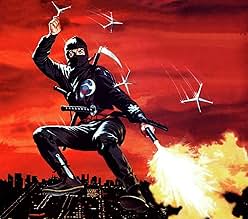

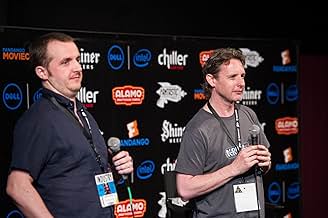
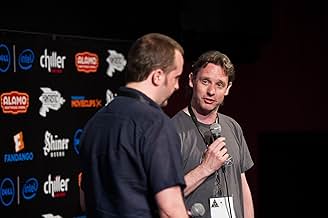
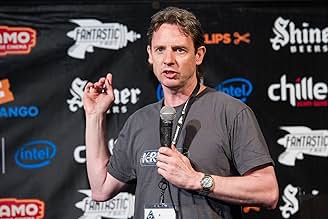

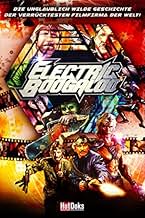
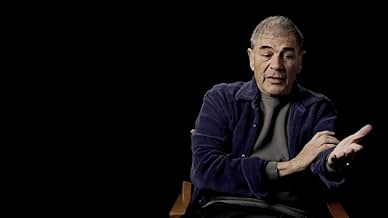
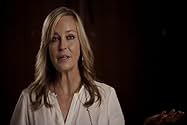
















![[REC] 4](https://m.media-amazon.com/images/M/MV5BOTU3OTU2ODc5MF5BMl5BanBnXkFtZTgwNjY3MDY2MzE@._V1_QL75_UX140_CR0)




